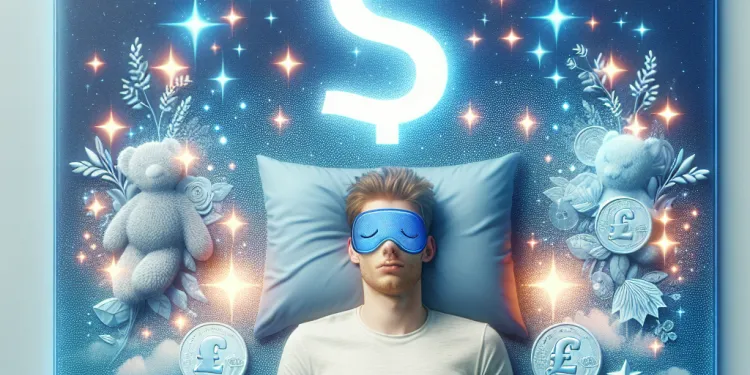
Find Help
More Items From Ergsy search
-
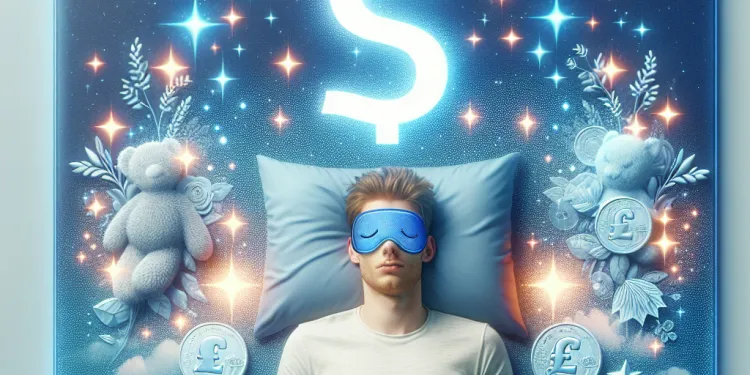
Do mitigation strategies like blue light glasses help improve sleep quality?
Relevance: 100%
-
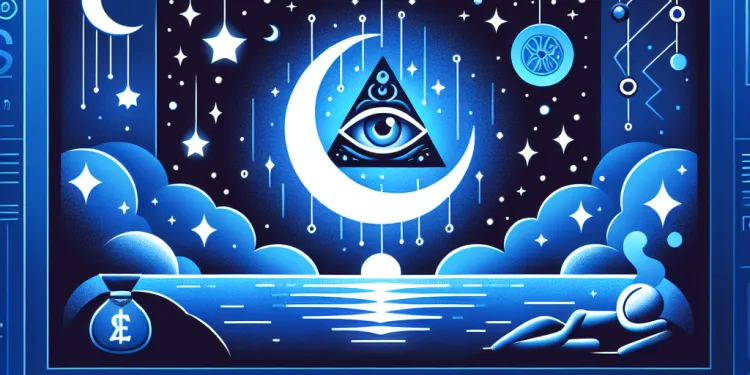
Is blue light from screens a factor in affecting sleep quality?
Relevance: 71%
-

Study Shows Link Between Screen Time and Sleep Quality
Relevance: 46%
-

How does screen time affect sleep quality?
Relevance: 43%
-
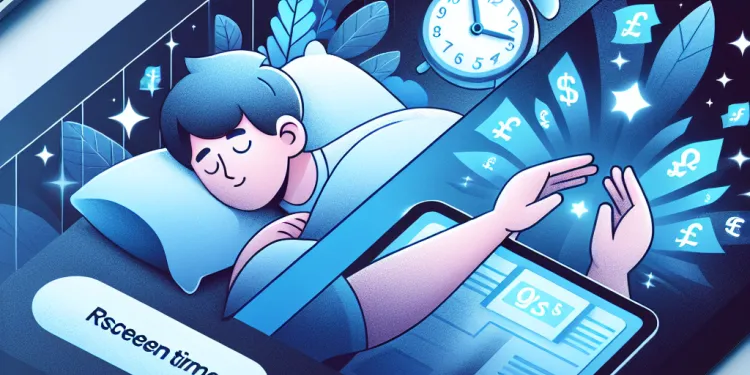
Can reducing screen time improve sleep quality?
Relevance: 43%
-

Does screen time affect both sleep onset and sleep maintenance?
Relevance: 41%
-

What is the main finding of the study linking screen time to sleep quality?
Relevance: 38%
-
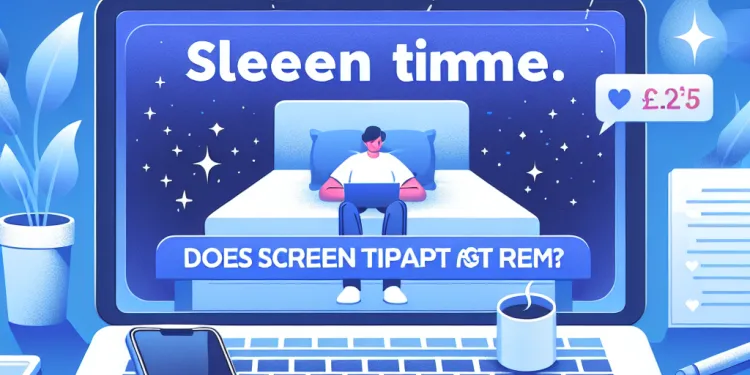
Does screen time impact REM sleep?
Relevance: 37%
-

What are some tips for reducing screen time to improve sleep?
Relevance: 36%
-

Are there any screen time guidelines recommended for improving sleep?
Relevance: 36%
-

What demographic showed the most significant change in sleep quality due to screen time?
Relevance: 35%
-
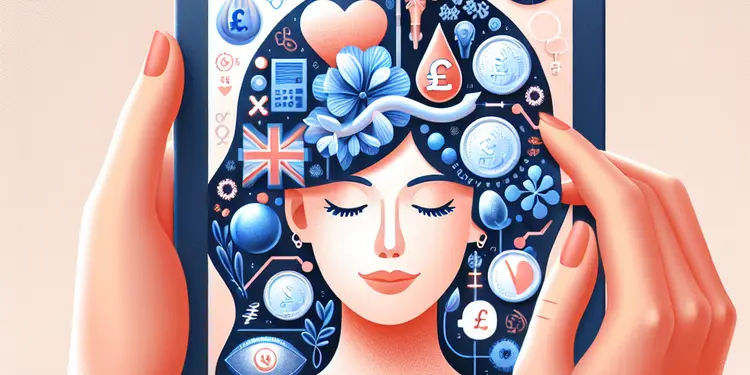
How does sleep quality relate to menopause symptoms?
Relevance: 29%
-

Is there a difference in screen time impact on sleep between weekdays and weekends?
Relevance: 28%
-
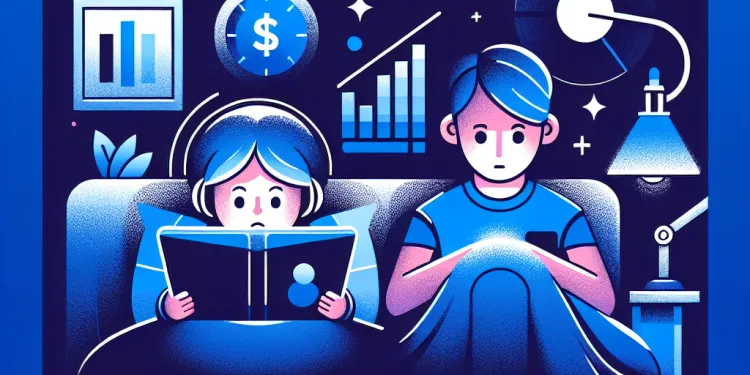
Are children more affected by screen time in relation to sleep than adults?
Relevance: 26%
-
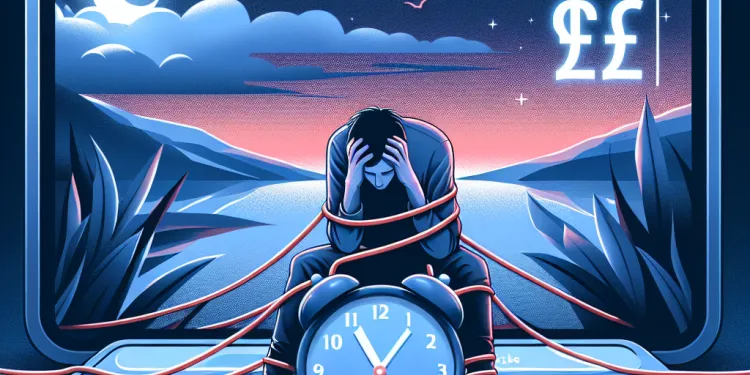
What are some long-term effects of poor sleep quality linked to screen time?
Relevance: 26%
-
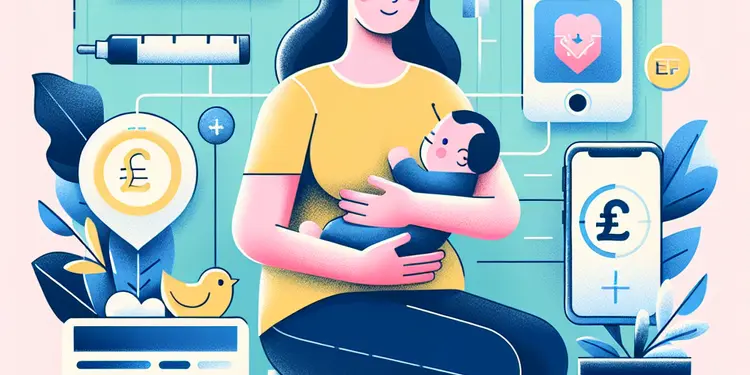
How is postnatal depression different from the 'baby blues'?
Relevance: 26%
-

How does screen time before bed specifically affect adolescents?
Relevance: 25%
-

Strategies for Managing Seasonal Affective Disorder
Relevance: 24%
-

Are glass jars or pouches better for keeping baby food safe?
Relevance: 22%
-
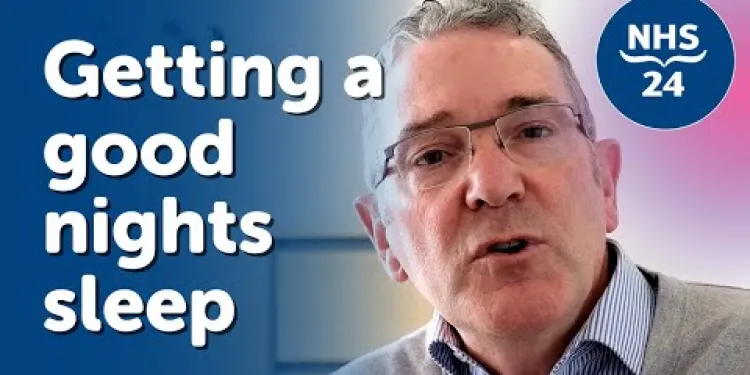
Top Tips to Help You Get a Good Nights Sleep
Relevance: 21%
-

What is the role of parental monitoring in children's screen time and sleep?
Relevance: 21%
-
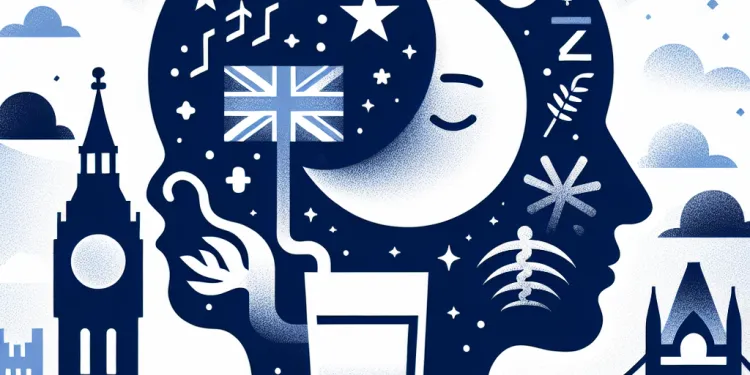
Can alcohol worsen sleep apnea?
Relevance: 21%
-
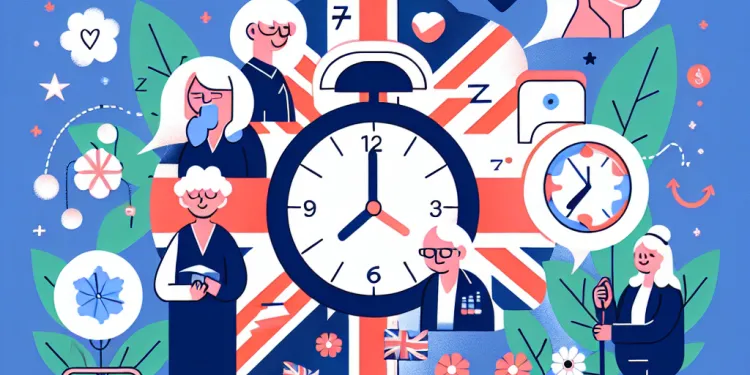
The Importance of Sleep for All Ages
Relevance: 20%
-
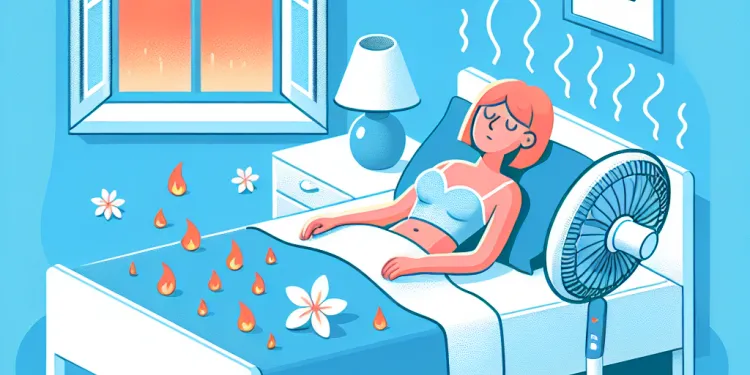
How can I sleep comfortably during a heatwave?
Relevance: 19%
-
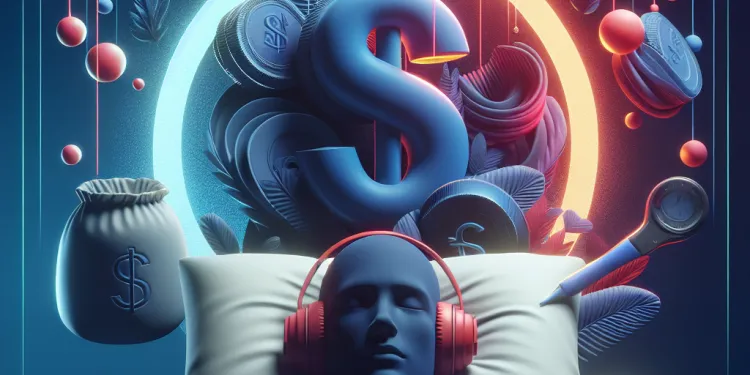
Why is sleep apnea dangerous?
Relevance: 19%
-

Are there self-help strategies for managing health-related anxiety?
Relevance: 19%
-

Is it dangerous driving to run a red light?
Relevance: 18%
-

Newcastle Specialist Continence Service's Light Urinary Incontinence Project
Relevance: 18%
-
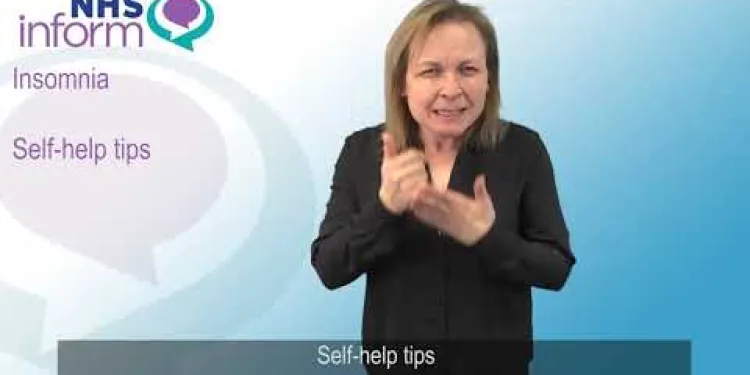
BSL - Insomnia self-help tips
Relevance: 18%
-

Is UK air quality changing?
Relevance: 18%
-

What is sleep apnea?
Relevance: 17%
-
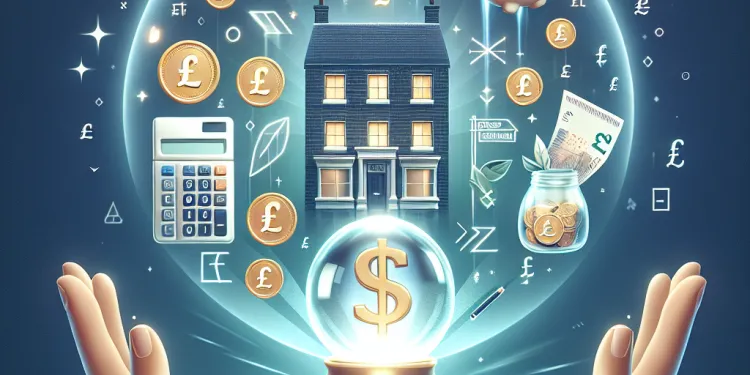
How can I plan efficiently to mitigate inheritance tax?
Relevance: 17%
-

What is sleep apnoea?
Relevance: 17%
-

What are some coping strategies for tinnitus?
Relevance: 17%
-

Will mosquito screens block out light or air?
Relevance: 17%
-

What should I do if I suspect I have sleep apnea?
Relevance: 17%
-
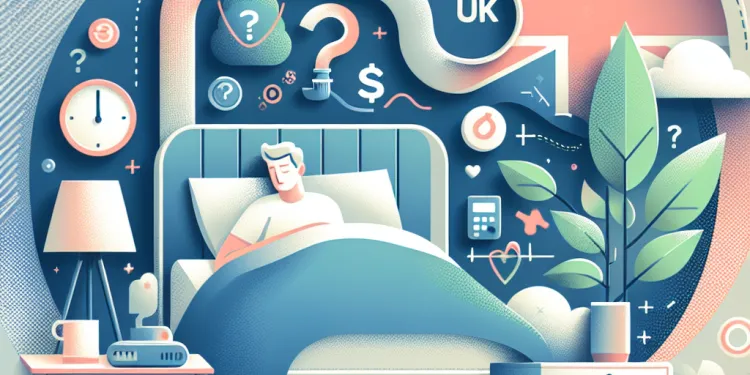
How common is sleep apnea?
Relevance: 17%
-
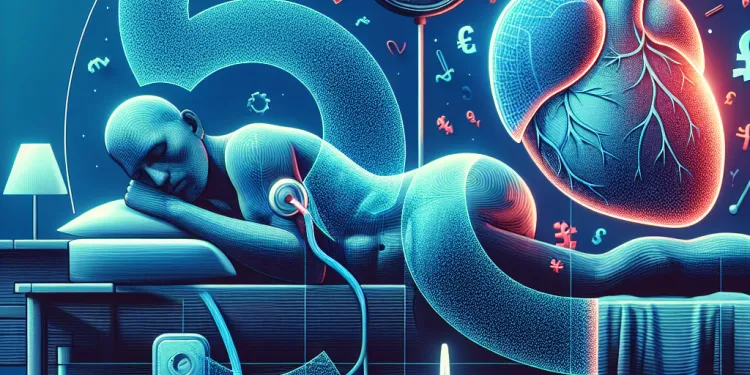
What is complex sleep apnea syndrome?
Relevance: 17%
-
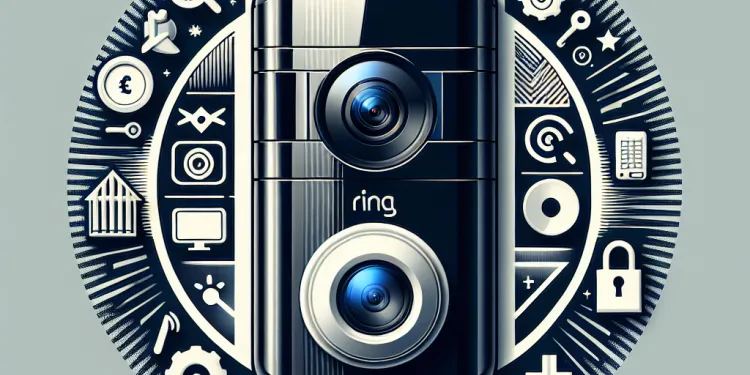
Is the video quality of a Ring Doorbell Camera good?
Relevance: 16%
-
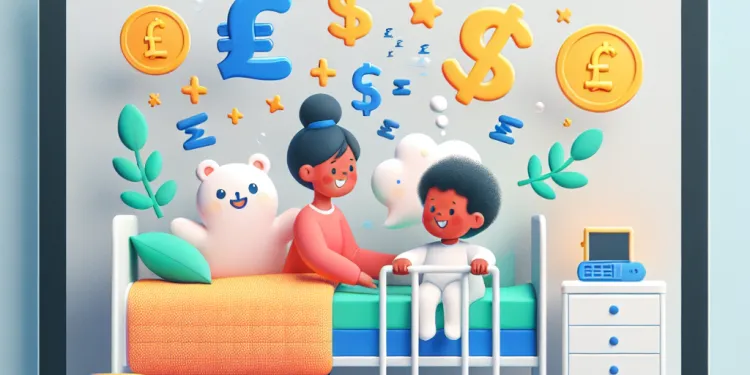
Can children have sleep apnea?
Relevance: 16%
Understanding Blue Light and Its Impact on Sleep
The growing use of digital devices in our daily lives has raised concerns about the effects of blue light on our health, particularly sleep. Blue light, emitted by smartphones, tablets, computers, and LED lighting, is known to disrupt the production of melatonin, a hormone that regulates sleep-wake cycles. The exposure to blue light, especially in the evening, can lead to difficulties in falling asleep, reduced sleep quality, and insufficient rest. For individuals in the UK and beyond, this has led to a surge in interest in blue light mitigation strategies, such as the use of blue light glasses.
What Are Blue Light Glasses?
Blue light glasses are designed with special lenses that filter out blue light waves. By wearing these glasses, users can potentially reduce their exposure to blue light during evening hours, a time when excessive exposure can significantly affect the body's natural sleep patterns. Available widely in the UK market, these glasses come in various designs and strengths, making them accessible for different preferences and needs.
Evaluating Blue Light Glasses as a Mitigation Strategy
Research into the effectiveness of blue light glasses in improving sleep quality is ongoing, with mixed results. Some studies suggest that these glasses can help improve sleep by reducing blue light exposure, thereby facilitating better melatonin production and a more natural sleep cycle. Users in the UK have reported feeling less fatigued and experiencing improved sleep quality after using blue light glasses.
However, other research indicates that the benefits may not be as significant as some might hope. Critics argue that lifestyle changes, such as reducing screen time and increasing exposure to natural light during the day, might play a more crucial role in improving sleep quality than relying solely on blue light glasses.
Additional Mitigation Strategies for Better Sleep
Besides blue light glasses, several other strategies can help improve sleep quality. Limiting screen time in the hours before bedtime and creating a relaxing bedtime routine can be highly effective. The use of "night mode" settings on devices, which reduces blue light emission, is another practical approach. Furthermore, increasing exposure to natural light during the day and maintaining a regular sleep schedule are proven methods to encourage better sleep.
For individuals in the UK experiencing persistent sleep issues, consulting with a healthcare professional is recommended. Poor sleep can significantly impact overall health and well-being, so addressing the root causes is essential.
Conclusion
While blue light glasses can be a useful tool in mitigating the effects of blue light exposure, they should be considered part of a broader strategy for improving sleep quality. By combining the use of blue light glasses with lifestyle changes, individuals can create a more conducive environment for restful sleep. Balancing technology use with healthy habits remains key to ensuring a good night's sleep for those in the UK and beyond.
Understanding Blue Light and Its Impact on Sleep
We use digital devices a lot, like phones and computers. These devices give off something called blue light. Blue light can make it hard for us to sleep. It stops our body from making melatonin, which helps us sleep. Looking at screens at night can make it hard to fall asleep and get good rest. Many people are now wearing special glasses to block blue light and help them sleep better.
What Are Blue Light Glasses?
Blue light glasses have special lenses to block blue light. Wearing these glasses can help you get less blue light in the evening. Less blue light helps your body know when it is time to sleep. These glasses are easy to find in the UK and come in different styles.
Do Blue Light Glasses Help Sleep?
Scientists are studying if these glasses really help us sleep better. Some people say the glasses help because they block blue light and help the body make more melatonin. This helps them feel more rested. But, not everyone agrees. Some people think changing habits, like spending less time on screens and more time outside during the day, may help sleep more than just using these glasses.
Other Ways to Sleep Better
There are other ways to get better sleep. Try not to use screens before bedtime. Make a calm bedtime routine. Use night mode on devices to reduce blue light. Get more sunlight during the day. Go to sleep and wake up at the same time every day. If you still have trouble sleeping, talk to a doctor. Good sleep is important for your health.
Conclusion
Blue light glasses can help reduce sleep problems. But they work best along with other good habits. Use these glasses as a part of your plan for better sleep. Mixing good habits with smart use of technology can help you sleep well. This is important for everyone, including those in the UK.
Frequently Asked Questions
What are blue light glasses?
Blue light glasses are designed to block or filter out the blue light emitted by digital screens, which is believed to interfere with sleep quality.
How does blue light affect sleep?
Exposure to blue light in the evening can suppress the production of melatonin, a hormone that regulates sleep, making it harder to fall asleep.
Do blue light glasses actually improve sleep quality?
Some studies suggest that using blue light glasses in the evening may improve sleep quality by reducing blue light exposure, thus allowing melatonin production to normalize.
Can I wear blue light glasses all day?
Yes, you can wear them all day, but they are primarily beneficial when used in the evening to reduce blue light exposure before bedtime.
Are there other benefits to wearing blue light glasses?
Aside from potential sleep benefits, blue light glasses may also reduce digital eye strain and discomfort when using screens for extended periods.
How else can I reduce blue light exposure?
You can reduce blue light exposure by adjusting the settings on your devices, using screen filters, or avoiding screens altogether an hour or two before bedtime.
Do all blue light glasses work the same?
No, effectiveness can vary based on the quality of the lenses and how much blue light they block, with some blocking up to 90% of blue light.
Is it safe to wear blue light glasses?
Yes, blue light glasses are generally safe to wear and do not harm your vision.
Can blue light glasses replace other sleep aids?
Blue light glasses may complement other sleep aids but should not be relied upon solely to improve sleep quality.
What other strategies can improve sleep quality?
Good sleep hygiene, such as maintaining a regular sleep schedule, a dark room, and relaxing before sleep, can improve sleep quality.
Do children need blue light glasses?
While children can benefit from reduced blue light exposure, it is also important to limit their screen time, especially before bed.
How does screen time affect sleep quality?
Extended screen time, particularly at night, can interfere with falling asleep and staying asleep due to the stimulating effects of blue light.
Can blue light glasses help with insomnia?
While they may assist with improving sleep quality, they are not a cure for insomnia, which often requires a comprehensive approach.
How quickly should I expect results from wearing blue light glasses?
Some people may notice improvements in sleep quality in a few days to weeks after consistently using the glasses in the evening.
Do blue light glasses affect natural light perception?
Quality blue light glasses should not significantly distort colors or natural light perception during regular daytime use.
Are there specific brands recommended for blue light glasses?
There are many brands available; it's important to choose ones tested for blue light blocking efficacy and customer reviews.
Can using blue light glasses have side effects?
Most users do not experience side effects, but some may find slight color distortion, particularly with lenses that block more blue light.
Should I consult a doctor before using blue light glasses?
Consulting a doctor isn’t necessary, but if you have specific eye concerns, seeking advice from an eye-care professional is wise.
How else can I enhance melatonin production naturally?
Exposure to natural sunlight during the day and avoiding screens before bed can elevate melatonin levels naturally.
Do blue light glasses help with screen-related headaches?
Yes, many users report fewer headaches due to reduced eye strain when using blue light glasses during screen time.
What are blue light glasses?
Blue light glasses are special glasses. They help your eyes when you look at screens. Screens from phones, tablets, and computers have blue light.
These glasses help by blocking some of the blue light. This can make your eyes feel less tired when you use screens for a long time.
Tips to help:
- Take breaks from screens. Every 20 minutes, look at something far away for 20 seconds.
- Use screen filters on your devices.
- Make the room bright when using screens.
Blue light glasses are made to block or reduce blue light from phones, computers, and tablets. Blue light can make it hard to sleep well.
How does blue light affect sleep?
Blue light comes from screens, like phones and computers. It can make it hard to sleep.
Here are some tips to help with sleep:
- Turn off screens 1 hour before bed.
- Use 'night mode' on your devices.
- Make your room dark and quiet.
Seeing blue light at night can stop your body from making melatonin. Melatonin is a sleep hormone. If you have less melatonin, it can be harder to fall asleep.
Do blue light glasses help you sleep better?
Using blue light glasses in the evening might help you sleep better. These glasses block blue light. This helps your body make a sleep chemical called melatonin, which helps you fall asleep.
Can I wear blue light glasses all day?
You can wear blue light glasses all day if you want. They help protect your eyes from screens. But make sure they are comfortable. If your eyes hurt, take a break.
Here are some tips to help:
- Take breaks from screens. Look away every 20 minutes.
- Blink often to keep your eyes wet.
- Use larger text on screens so it’s easier to read.
Yes, you can wear them all day. But they work best at night. They help block blue light before you go to sleep.
Do blue light glasses help in other ways?
Blue light glasses can help you sleep better. They can also stop your eyes from getting tired and hurting when you look at screens for a long time.
What else can I do to have less blue light?
You can cut down on blue light by changing the settings on your devices. You can also use special screen filters. Another way is to stay away from screens one or two hours before bed.
Tools like blue light glasses can help. Setting reminders to take breaks from screens is a good idea too.
Do all blue light glasses work the same way?
Blue light glasses help protect your eyes from blue light. But not all blue light glasses work the same. Some are better than others.
When you pick blue light glasses, check the label. See how much blue light they block.
Try to find glasses with good reviews. You can ask a friend or use the internet to find out what other people think.
No, they don't all work the same. It depends on how good the lenses are and how much blue light they block. Some can block up to 90% of blue light.
Can I Wear Blue Light Glasses Safely?
Yes, wearing blue light glasses is safe and won't hurt your eyes.
Can blue light glasses help you sleep instead of other things?
Blue light glasses can help you sleep better, but they should not be the only thing you use to improve your sleep.
How can you sleep better?
To sleep well, try these things:
- Go to bed and wake up at the same time every day.
- Make your room dark when you sleep.
- Do something calm before bed, like reading or listening to soft music.
These tips can help you sleep better.
Do kids need blue light glasses?
Do kids need to wear glasses that block blue light?
What is blue light?
Blue light comes from screens like tablets, computers, and phones. It is part of the light that these devices make.
Why do people use blue light glasses?
Some people wear blue light glasses to stop their eyes from getting tired when they look at screens for a long time.
Do all kids need them?
Not every kid needs these glasses. It can help to take breaks from screens.
What can kids do to rest their eyes?
Here are some tips to help kids rest their eyes:
- Take a break every 20 minutes when using a screen.
- Look at something far away for 20 seconds.
- Remember to blink often.
If you think your child might need these glasses, talk to an eye doctor.
It's good for kids to look at less blue light from screens. It's also important to have less screen time, especially before going to sleep.
How does screen time affect sleep quality?
Does looking at screens change how well you sleep?
Looking at screens for a long time, especially at night, can make it hard to fall asleep and stay asleep. This is because the bright light from screens can wake up your brain.
Can blue light glasses help you sleep better?
Do you know about blue light glasses? These glasses can stop blue light from screens. Blue light can make it hard to sleep.
Here is a simple question: Can wearing blue light glasses help you sleep better?
If you are not sure, you can try wearing them at night. You can also ask a trusted adult for help.
These things can help you sleep better, but they do not fix sleeping problems like insomnia. People with insomnia often need different types of help or treatments to get better sleep.
When will I see changes from wearing blue light glasses?
Some people may sleep better after wearing the glasses in the evening for a few days to a few weeks.
Do blue light glasses change how we see light?
Good blue light glasses should not change the way you see colors or natural light during the day.
What are good brands for blue light glasses?
Here is a simpler way to understand:
- Blue light glasses: Glasses that help protect your eyes from screens.
- Brands: Different companies make these glasses.
If you want to buy blue light glasses, try to:
- Ask a parent or friend for help picking a good brand.
- Look for reviews online to find out what others think.
- Visit a store to try on different pairs.
- Ask the salesperson for advice.
Tools to help:
- Use websites that compare different brands.
- Watch videos about the glasses online.
There are lots of different brands you can choose from. It's a good idea to pick the ones that have been checked to make sure they really block blue light. Also, read what other people say about them to help you decide.
Can wearing blue light glasses cause problems?
Most people do not have problems, but some might see colors a little differently. This can happen if the lenses block a lot of blue light.
Should I ask a doctor before using blue light glasses?
Blue light glasses help protect your eyes from screens like TVs, phones, and computers.
It is a good idea to talk to a doctor for advice. They can help you make the best choice.
Tips:
- Ask a family member or friend to help you talk to the doctor.
- Write down any questions you have before visiting the doctor.
You don't have to see a doctor. But if you are worried about your eyes, it is a good idea to talk to an eye doctor.
How can I help my body make more melatonin naturally?
Sunshine during the day helps us sleep better at night. Staying away from screens like phones and TVs before bed also helps us feel sleepy.
Do blue light glasses stop screen headaches?
Some people get headaches from looking at screens, like computers or phones. Blue light glasses might help. These glasses block blue light from screens.
Here are some tips to help with screen headaches:
- Take a break from the screen every 20 minutes.
- Look at something far away for 20 seconds.
- Keep your screen a little below eye level.
- Use apps that reduce blue light on screens.
Yes, many people say they get fewer headaches. This is because blue light glasses help their eyes feel better when looking at screens.
Useful Links
This website offers general information and is not a substitute for professional advice.
Always seek guidance from qualified professionals.
If you have any medical concerns or need urgent help, contact a healthcare professional or emergency services immediately.
Some of this content was generated with AI assistance. We’ve done our best to keep it accurate, helpful, and human-friendly.
- Ergsy carfully checks the information in the videos we provide here.
- Videos shown by Youtube after a video has completed, have NOT been reviewed by ERGSY.
- To view, click the arrow in centre of video.
- Most of the videos you find here will have subtitles and/or closed captions available.
- You may need to turn these on, and choose your preferred language.
- Go to the video you'd like to watch.
- If closed captions (CC) are available, settings will be visible on the bottom right of the video player.
- To turn on Captions, click settings .
- To turn off Captions, click settings again.
More Items From Ergsy search
-

Do mitigation strategies like blue light glasses help improve sleep quality?
Relevance: 100%
-

Is blue light from screens a factor in affecting sleep quality?
Relevance: 71%
-

Study Shows Link Between Screen Time and Sleep Quality
Relevance: 46%
-

How does screen time affect sleep quality?
Relevance: 43%
-

Can reducing screen time improve sleep quality?
Relevance: 43%
-

Does screen time affect both sleep onset and sleep maintenance?
Relevance: 41%
-

What is the main finding of the study linking screen time to sleep quality?
Relevance: 38%
-

Does screen time impact REM sleep?
Relevance: 37%
-

What are some tips for reducing screen time to improve sleep?
Relevance: 36%
-

Are there any screen time guidelines recommended for improving sleep?
Relevance: 36%
-

What demographic showed the most significant change in sleep quality due to screen time?
Relevance: 35%
-

How does sleep quality relate to menopause symptoms?
Relevance: 29%
-

Is there a difference in screen time impact on sleep between weekdays and weekends?
Relevance: 28%
-

Are children more affected by screen time in relation to sleep than adults?
Relevance: 26%
-

What are some long-term effects of poor sleep quality linked to screen time?
Relevance: 26%
-

How is postnatal depression different from the 'baby blues'?
Relevance: 26%
-

How does screen time before bed specifically affect adolescents?
Relevance: 25%
-

Strategies for Managing Seasonal Affective Disorder
Relevance: 24%
-

Are glass jars or pouches better for keeping baby food safe?
Relevance: 22%
-

Top Tips to Help You Get a Good Nights Sleep
Relevance: 21%
-

What is the role of parental monitoring in children's screen time and sleep?
Relevance: 21%
-

Can alcohol worsen sleep apnea?
Relevance: 21%
-

The Importance of Sleep for All Ages
Relevance: 20%
-

How can I sleep comfortably during a heatwave?
Relevance: 19%
-

Why is sleep apnea dangerous?
Relevance: 19%
-

Are there self-help strategies for managing health-related anxiety?
Relevance: 19%
-

Is it dangerous driving to run a red light?
Relevance: 18%
-

Newcastle Specialist Continence Service's Light Urinary Incontinence Project
Relevance: 18%
-

BSL - Insomnia self-help tips
Relevance: 18%
-

Is UK air quality changing?
Relevance: 18%
-

What is sleep apnea?
Relevance: 17%
-

How can I plan efficiently to mitigate inheritance tax?
Relevance: 17%
-

What is sleep apnoea?
Relevance: 17%
-

What are some coping strategies for tinnitus?
Relevance: 17%
-

Will mosquito screens block out light or air?
Relevance: 17%
-

What should I do if I suspect I have sleep apnea?
Relevance: 17%
-

How common is sleep apnea?
Relevance: 17%
-

What is complex sleep apnea syndrome?
Relevance: 17%
-

Is the video quality of a Ring Doorbell Camera good?
Relevance: 16%
-

Can children have sleep apnea?
Relevance: 16%


